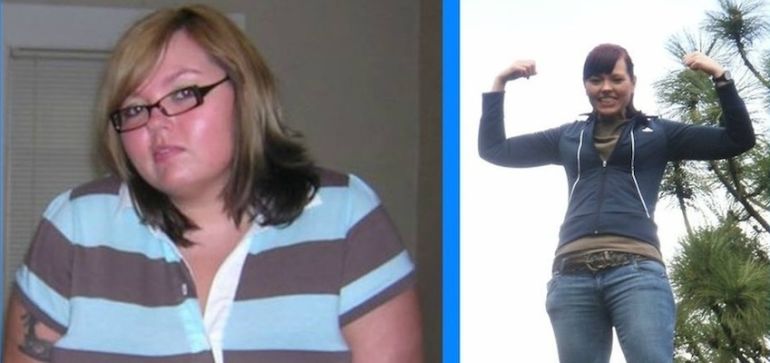Why Overeaters Anonymous Didnt Work For Me

I went from weighing about 300 pounds to weighing around 150 and have kept all but 20 pounds off for five years now. It wasn’t until a few months after I had lost most of the weight that I noticed I'd developed a food addiction problem. When I was obese, I ate badly and I ate obscene amounts of food, but foods (especially sweet foods) never tormented my mind all day long like they did after I lost weight. I fixated and obsessed about foods more than I ever did in my life.
I attended many Overeaters Anonymous meetings for a few months. I never felt like it was appropriate for me, but I gave it a solid effort. There's a possibility that meetings are vastly different in other areas of the country, but I can only speak on the meetings held in my area in the Pacific Northwest and from the information listed on the program’s website.
Some reasons why Overeater’s Anonymous is not appropriate for everyone:
1. The group setting is female dominant.
In my area, there are about 12 different meetings, and only about 5% of all group meetings I have attended included a male. My husband (then boyfriend) attended every meeting with me as support and I count him in that 5%.
2. During sharing time, most stories revolve around binge foods and binge episodes.
Certain foods are not to be spoken of by their names. However, it's acceptable to describe the food in detail. I once listened to a lady describe her doughnuts as “circular sweet things with a hole in the middle.” How can you expect people to get better and to STOP obsessing about food if they're continually going to meetings that are centered on recreating the experience of a binge and the shame that comes along with it?
3. OA members label themselves as compulsive overeaters or food addicts.
Once you stick a label on someone, it doesn't help the person to change; it creates a sort of acceptance that "this is just the way I am, I'm meant to be this way ..." like the person is a victim of a disease. It takes away a lot of personal power and responsibility of the individual.
4. They continue to tell you in OA that the plan works if you work the plan.
They have a lot of mantras like this. And it's true — most things will work if you put in the effort. However, reading all of their literature, staying in touch with your sponsor (or being a sponsor), attending the meetings, and attending the special events takes almost as much time as a having a second job. Then they also ask you to volunteer for events (so that you remain accountable) and donate money to each meeting you attend. If you have a lot of time and money on your hands, maybe this would not be an issue.
5. It's not specifically a weight-loss program.
While OA is supposed to be a program that helps people heal from compulsive overeating, it seemed like many people were going to OA to try to lose weight. It was still about restricting certain foods and measuring your food very rigidly, and not getting at the core reason the person was really overeating in the first place.
6. OA strongly encourages its members to abstain from sugar or any food that cause cravings and binges.
The problem with this is the abstinence from sugar can manifest into another form of eating disorder. The reason I personally ended up with a food addiction was because of this. During my weight-loss journey, I labeled a lot of foods completely off-limits. Anything that looked like dessert was not allowed in my mouth. Therefore, it became all I thought about.
While Overeaters Anonymous certainly can work for many, it wasn't right for me. Does anyone out there have a similar experience they'd like to share?
-
Steps For Losing Weight
In the fast moving world, it is very important to be physically fit an
-
6 Steps To Overcome Your Low Thyroid Symptoms
-
Best Weight Loss Programs - Tactics That Work!
Looking to lose weight and want to find
-
Emotional Eating - Time to Get Moving
So what are YOU eating tonight? You know how it is. Full of good i
-
How to Lose Weight without Being Hungry
Have you ever been in this place? You ha
-
HCA And Weight Loss From ShopPharmacyCounter
HCA stimulates fat-burning, and curb appetite has been done with anima
- DON'T MISS
- Get Skinnier With Raw Juices...a Delicious Way to Lose Weight
- The Truth About Abs Review Unveiled
- A Side Dish Called Desire
- How to Lose 2 Pounds a Week
- Diabetes Weight Loss-Diet And Exercise
- Burn Fat Now - How I lost 60 pounds in 5 months!
- What Is Yacon Syrup?
- Avoid the BBQ Bombshells
- 3 SIMPLE Ways to Maintain Your Ideal Weight
- Asian Diet Suggestions – Get Slim Quickly Without Intense Workouts!




